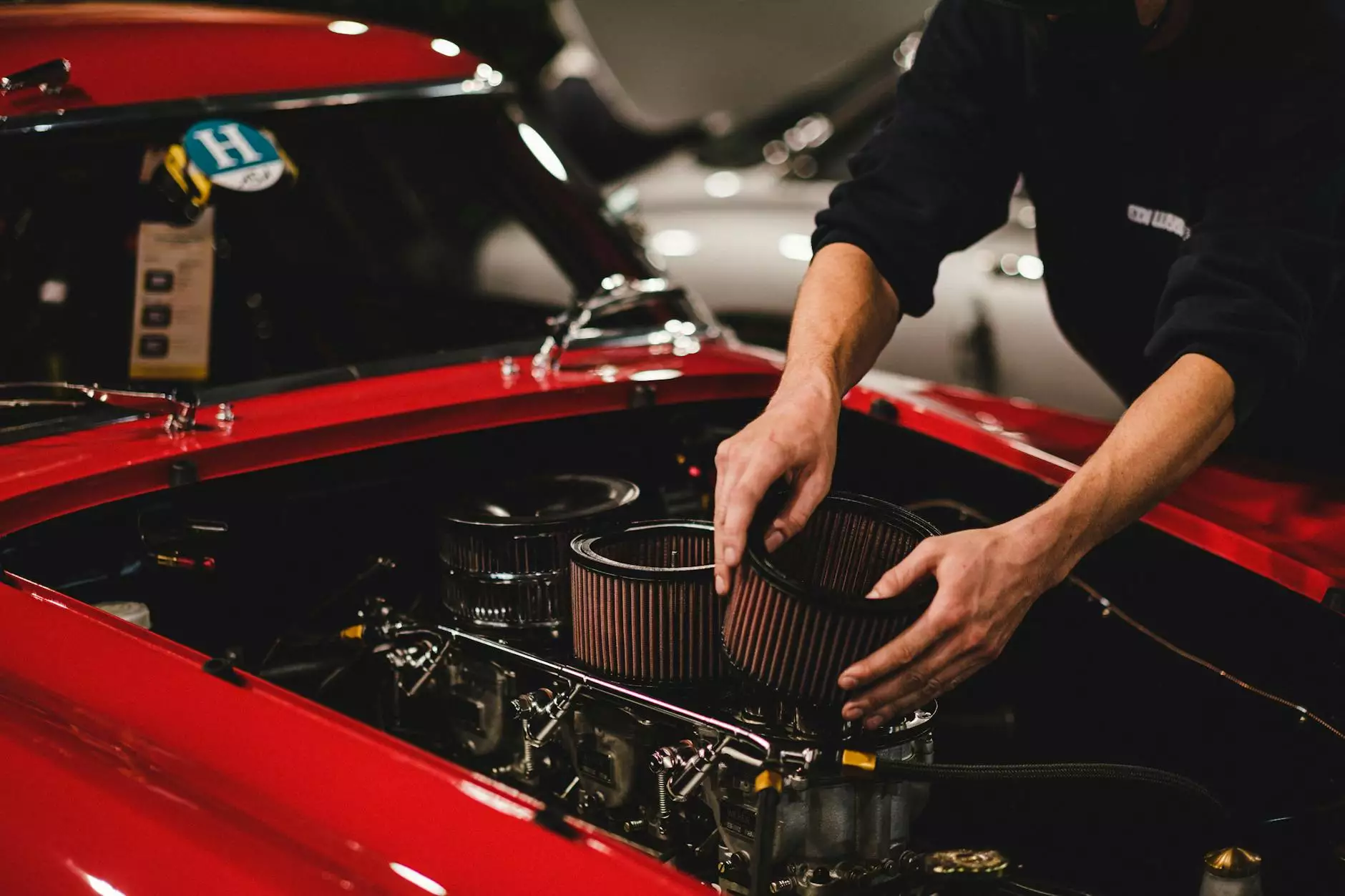Understanding Car Filter Replacement: A Key Component of Auto Maintenance

When it comes to maintaining your vehicle's health, car filter replacement is an often overlooked yet crucial aspect. As vehicle owners in Indianapolis, understanding the importance of routine maintenance, including filter replacements, can lead to enhanced performance, fuel efficiency, and longevity of your car. This comprehensive guide will delve into various types of filters, the impact of neglecting replacements, and expert tips to keep your vehicle running smoothly.
What is a Car Filter and Why is It Important?
A car filter is a device that helps remove contaminants from the fluids and air that flow through different systems within your vehicle. This includes:
- Air Filters: Clean the air entering the engine to improve performance.
- Fuel Filters: Remove dirt and debris from the fuel to ensure optimal engine function.
- Cabin Air Filters: Purify the air entering the passenger compartment for comfort and health.
- Oil Filters: Filter contaminants from the engine oil to prolong engine life.
The primary role of these filters is to protect vital components of your vehicle, thus ensuring it operates efficiently. Neglecting filter replacements can lead to serious issues, including decreased performance, increased emissions, and even engine failure.
Types of Filters and Their Replacement Schedule
Understanding the various types of filters in your vehicle and their recommended replacement schedule is key to maintaining optimal performance. Here’s a detailed breakdown:
1. Air Filters
The engine air filter is crucial for ensuring that your engine receives clean air for combustion. Replacing the air filter is generally recommended every 12,000 to 15,000 miles, but you should check your owner’s manual for specific suggestions.
2. Fuel Filters
Fuel filters prevent various contaminants from entering the engine. Most manufacturers suggest changing the fuel filter every 20,000 to 30,000 miles. However, your driving conditions can affect this schedule. If you frequently drive in dusty environments or use poor-quality fuel, more frequent replacements may be necessary.
3. Cabin Air Filters
To ensure the air inside your vehicle remains fresh and free of allergens, cabin air filters should be replaced every 15,000 to 25,000 miles. Regular replacements of cabin filters are especially important for maintaining a healthy environment, particularly for those with allergies.
4. Oil Filters
The oil filter needs to be changed during every oil change, which is typically every 5,000 to 7,500 miles. Doing so ensures that the engine oil remains clean and can effectively lubricate engine components, promoting longevity.
Signs That Your Filters Need Replacement
Being vigilant about signs that indicate the need for filter replacements can save you from significant repairs in the future. Here are some common signs:
1. Reduced Fuel Efficiency
If you notice your vehicle's fuel efficiency declining, it may be due to a dirty fuel filter. A clogged filter restricts fuel flow and causes the engine to work harder, thus consuming more fuel.
2. Poor Engine Performance
Engine misfires, rough idling, or difficulties when accelerating may signify that your air filter or fuel filter needs cleaning or replacement.
3. Strange Noises
Unusual sounds from the engine compartment can indicate that air or fuel is not reaching the engine properly, often due to a blocked filter.
4. Unpleasant Smells Inside the Vehicle
A musty odor or weird smells can indicate a dirty cabin air filter. Replacing it will ensure your vehicle's interior air stays fresh and free from contaminants.
The Benefits of Regular Car Filter Replacement
Investing in timely car filter replacements comes with numerous benefits:
- Enhanced Engine Life: Clean filters prevent contaminants from damaging engine components, ensuring longevity.
- Improved Fuel Efficiency: Properly functioning filters allow the engine to breathe better and operate more efficiently, saving you money at the pump.
- Better Air Quality: Regularly changing cabin air filters can significantly improve the air quality inside your vehicle, making your trips more comfortable and healthier.
- Cost-Effective Maintenance: Routine filter replacements are far less expensive than the costs associated with major repairs that can result from neglect.
How to Replace Car Filters: A Step-by-Step Guide
While some vehicle owners prefer to leave maintenance to professionals, others may want to tackle car filter replacements at home. Here’s a straightforward guide to help you.
Step 1: Gather Your Tools
You will need:
- Fresh filters (specific to your vehicle model)
- Wrenches or sockets (if applicable)
- Clean rags
- Safety glasses
- Gloves
Step 2: Locate the Filter
Refer to your vehicle's manual to locate the specific filters.
Step 3: Remove the Old Filter
For air filters, detach the housing cover and gently remove the old filter. For fuel filters, ensure the fuel system is depressurized before disconnection. Take appropriate safety precautions, particularly when working with the fuel system.
Step 4: Install the New Filter
Make sure that the new filter is properly seated, and reconnect any housing or connections that were removed during the removal process.
Step 5: Check for Leaks
After replacing a fuel filter, run the engine for a few minutes and check for any leaks to ensure everything is correctly installed.
Choosing the Right Filters
Not all filters are created equal. When it comes to car filter replacement, ensuring that you select high-quality filters tailored to your vehicle's specifications is imperative. Here are a few tips to consider:
- OEM vs. Aftermarket: Original Equipment Manufacturer (OEM) filters are designed precisely for your vehicle's make and model, ensuring optimal performance. In contrast, aftermarket filters can vary in quality.
- Certification: Look for filters that meet industry standards (like ASTM or ISO), ensuring they provide the filtration quality you need.
- Reviews: Checking reviews can provide insights into the effectiveness and reliability of filters from various manufacturers.
When to Seek Professional Help
While many vehicle owners can handle simple car filter replacements, there are instances when seeking professional help, such as from ASG Indy, becomes essential:
- If you lack the necessary tools.
- If you're uncertain about the proper replacement procedure.
- If additional repairs are needed that extend beyond simple filter changes.
Final Thoughts on Car Filter Replacement
Regular car filter replacements are vital for maintaining your vehicle's performance and efficiency. By understanding the types of filters, their replacement schedules, and benefits, you can enjoy a smoother ride and prolong the life of your vehicle. Remember, preventative maintenance is key, and if you find yourself in need of expert assistance, don't hesitate to reach out to the qualified technicians at ASG Indy for unparalleled auto repair services in Indianapolis.









